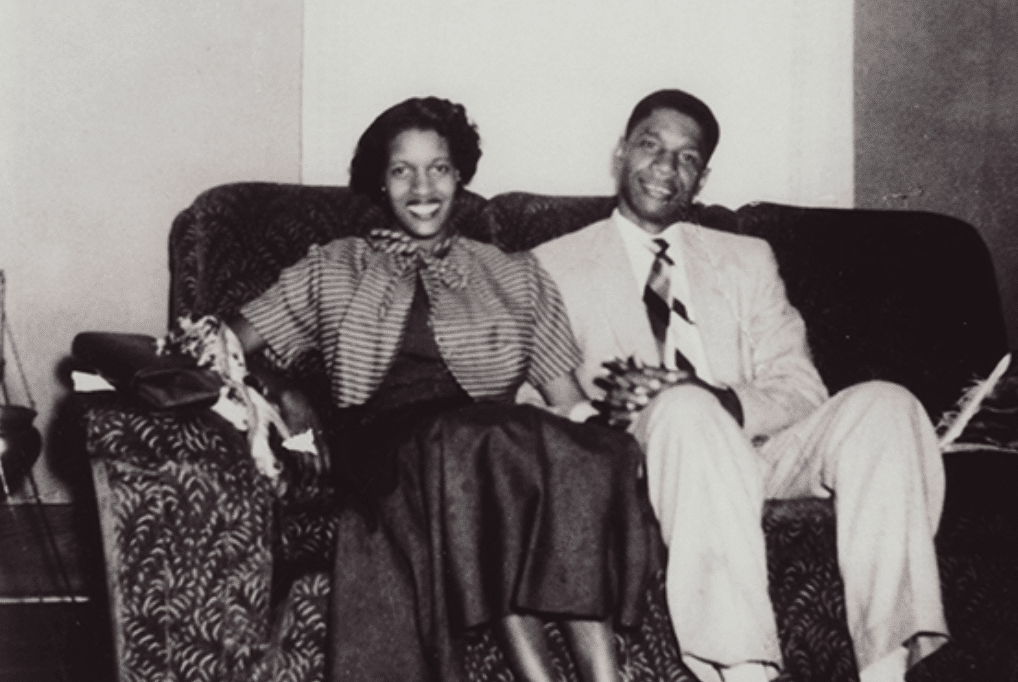Mississippi Today
North Mississippi business leaders urge Legislature to pass Medicaid expansion
A group of business leaders from northeast Mississippi, one of the most conservative areas of the state, recently wrote a letter to House Speaker Jason White encouraging lawmakers to expand Medicaid coverage to the working poor.
The letter, signed by influential Itawamba County business owner and Republican donor Luke Mongtomery, thanked White for pressing forward with Medicaid expansion legislation and called it “the most important legislative issue for the 2024 session.”
“As this bill now goes to our legislators appointed to the conference committee for consideration, I have faith that a workable solution will be developed that is agreeable among House and Senate leaders,” Montgomery wrote. “Legislation that is good for our future and for all Mississippians.”
Montgomery wrote the letter on behalf of Mississippi Hills Leadership PAC, a committee of north Mississippi business leaders who regularly donate to statewide politicians and dozens of conservative legislative candidates.
Montgomery is the current chairman of the PAC, while Dan Rollins, CEO of Tupelo-based Cadence Bank, serves as the vice vice chairman and David Rumbarger, CEO of Lee County's Community Development Foundation, serves as its treasurer.
The PAC last year donated $50,000 to White's campaign, $50,000 to a PAC White controls, $50,000 to Hosemann and thousands of dollars to lawmakers, according to campaign finance reports with the secretary of state's office.
Business and civic leaders in northeast Mississippi such as Jack Reed Sr., George McLean, Hassell Franklin and Bobby Martin, all of whom have since passed away, had a longstanding history of advocating for political causes in the region.
But in modern times, business leaders from the area are careful to wade into political issues beyond the typical scope of local business interests.
Montgomery told Mississippi Today in a statement that the PAC's leaders support White, a Republican from West, and Hosemann, the leader of the Senate, for realizing the importance of passing expansion legislation.
“The Mississippi Hills Leadership PAC fully supports our House and Senate leaders as they work together to develop a responsible healthcare expansion plan that takes full advantage of available federal support for the benefit of our hospitals, our people, and our future,” Montgomery said.
The letter comes in the middle of House and Senate leaders attempting to hammer out a compromise in a conference committee to resolve the different expansion plans the chambers have proposed.
The House's expansion plan aims to expand health care coverage to upwards of 200,000 Mississippians, and accept $1 billion a year in federal money to cover it, as most other states have done.
The Senate, on the other hand, wants a more restrictive program, to expand Medicaid to cover around 40,000 people, turn down the federal money, and require proof that recipients are working at least 30 hours a week.
Montgomery's letter did not endorse a specific plan, but it did call the House's plan, which expanded coverage to the full 138% of the federal poverty level under the Affordable Care Act, “a reasonable and responsible proposal.”
A potential compromise is for the two chambers to agree on a “MarketPlus Hybrid Plan,” which health policy experts with the Center for Mississippi Health Policy and the Hilltop Institute at the University of Maryland, Baltimore County estimate could save the state money in the long-term.
Speaker White previously told Mississippi Today in an interview that he believes he can hold a bipartisan group of more than 90 House members, a veto-proof majority, together in support of a compromise expansion package.
But the coalition of support in the 52-member Senate is more fragile. The Capitol's upper chamber only passed its austere expansion plan by 36 votes, with only one vote to spare for the two-thirds threshold needed to override a governor's veto.
In addition to Hosemann, the PAC has donated money to the following senators: Kathy Chism, R-New Albany; Rita Potts Parks, R-Corinth; Daniel Sparks, R-Belmont; Chad McMahan, R-Guntown; Hob Bryan, D-Amory; Ben Suber, R-Bruce; Dean Kirby, R-Pearl; Briggs Hopson, R-Vicksburg and Josh Harkins, R-Flowood.
Jack Reed Jr., the former Republican mayor of Tupelo and the CEO of Reed's Department Store, an economic anchor of downtown Tupelo, is also expected to be at the Capitol on Tuesday morning to advocate for expansion.
This article first appeared on Mississippi Today and is republished here under a Creative Commons license.
Mississippi Today
On this day in 1850


May 3, 1850

Shadrach Minkins, already separated from his family, escaped from the Norfolk, Virginia, home, where he was enslaved. He made his way to Boston, where he did odd jobs until he began working as a waiter at Taft's Cornhill Coffee House.
Months later, Congress passed the Fugitive Slave Act, which gave authorities the power to go into free states and arrest Black Americans who had escaped slavery.
A slave catcher named John Caphart arrived in Boston, with papers for Minkins. While serving breakfast at the coffee house, federal authorities arrested Minkins.
Several local lawyers, including Robert Morris, volunteered to represent him. Three days later, a group of abolitionists, led by African-American abolitionist Lewis Hayden, broke into the Boston courthouse and rescued a surprised Minkins.
“The rescuers headed north along Court Street, 200 or more following like the tail of a comet,” author Gary Collison wrote. They guided him across the Charles River to the Cambridge home of the Rev. Joseph C. Lovejoy, whose brother, Elijah, had been lynched by a pro-slavery mob in Illinois in 1837.
Another Black leader, John J. Smith, helped Minkins get a wagon with horses, and from Cambridge, Hayden, Smith and Minkins traveled to Concord, where Minkins stayed with the Bigelow family, which guided him to the Underground Railroad, making his way to Montreal, spending the rest of his life in Canada as a free man.
Abolitionists cheered his escape, and President Millard Fillmore fumed. Morris, Hayden and others were charged, but sympathetic juries acquitted them. Meanwhile in Montreal, Minkins met fellow fugitives, married, had four children and continued to work as a waiter before operating his own restaurants.
He ended his career running a barbershop before dying in 1875. A play performed in Boston in 2016 told the dramatic story of his escape.
This article first appeared on Mississippi Today and is republished here under a Creative Commons license.
Did you miss our previous article…
https://www.biloxinewsevents.com/?p=355311
Mississippi Today
Medgar Evers will receive Presidential Medal of Freedom

At her husband's funeral in 1963, Myrlie Evers heard NAACP Executive Director Roy Wilkins declare, “Medgar Evers believed in his country. It remains to be seen if his country believes in him.”
Later today, his country will declare its belief in him when the family of the slain Mississippi NAACP leader receives the Presidential Medal of Freedom, the highest civilian honor.
But Medgar Evers was more than a civilian. He fought the Nazis in World War II, only to return home and fight racism, this time in the form of Jim Crow, which barred Black Mississippians from the ballot box.
On his 21st birthday, he and other Black veterans of the war went to vote at the courthouse in Decatur, where they were met by white men with guns.
Afterward, he vowed he would never be defeated again and that he would keep fighting by joining others dedicated to the cause of the civil rights movement.
“The movement for equality was always on his mind, and whites' denial of his right to vote in his hometown served as one cog of many in the overall wheel of injustice, a wheel of which he was bound and determined to break,” said Michael Vinson Williams, author of “Medgar Evers: Mississippi Martyr.”
Myrlie Beasley met Medgar Evers on the first day of her freshman year at Alcorn A&M College in fall 1950. As she leaned against a light pole, she said he told her to be careful, “you might get shocked.”
And shocked she was when she fell in love and married him a year later. He was one of those military veterans that her family had warned her about. And he was involved in the movement that her family had avoided.
She joined him in the fight, and they moved to Mississippi's only all-Black town, Mound Bayou, where he helped Dr. T.R.M. Howard lead a boycott. They distributed thousands of fluorescent bumper stickers that read, “Don't Buy Gas Where You Can't Use the Restroom.”
In January 1954, the University of Mississippi School of Law turned Medgar Evers away because of the color of his skin. NAACP officials considered taking his case to court, but they were so impressed with him they hired him instead as the first field secretary for the Mississippi NAACP.
Myrlie Evers worked as his secretary. She said he insisted they call each other “Mr. Evers” and “Mrs. Evers” in the office.
He spent much of his time on the road, putting 40,000 miles a year on his car, recruiting new members, reviving branches and inspiring young people to participate in the movement, including Joyce Ladner, who invited him to speak to the NAACP Youth Council in Hattiesburg.
“He had a quiet courage,” she recalled. “I was always amazed that he drove up and down Mississippi's two-lane highways alone at night. He was a marked man, but he kept on going.”

In 1961, Joan Trumpaeur Mulholland was one of more than 400 Freedom Riders, half of them white, who challenged segregation laws in the South. She and other Riders were arrested and sent to serve their time at the State Penitentiary at Parchman.
When she and other Riders needed a lawyer, Medgar Evers “was the one who took care of it,” she said.
He became a model for her and others in character and courage, talking often to Tougaloo College students, she recalled. “He wasn't intimidated.”
In 1962, Evers installed Leslie McLemore as president of the Rust College chapter of the Mississippi NAACP. “Medgar Evers was really a brilliant man,” he said. “He had an incisive mind and personality that drew people to him. In another era, he could have been a U.S. senator from Mississippi or maybe even President.”
Evers investigated countless cases of intimidation and violence against Black Americans, including the 1955 murder of Emmett Till. Evers often dressed as a sharecropper in those investigations.
No matter where he went, threats of violence followed. He bought an Oldsmobile 88 with a V-8 engine so powerful it would leave most cars behind. On some dark nights across the Mississippi Delta, he floored it to escape those hell-bent on harming him.
His name appeared on Ku Klux Klan “death lists,” and his home telephone rang at all hours with threats to him and his family.
When his daughter, Reena, answered the phone one time, she heard a man saying he planned to torture and kill her father.
In spite of these threats, he stayed. He told Ebony magazine, “The state is beautiful, it is home, I love it here. A man's state is like his house. If it has defects, he tries to remedy them. That's what my job is here.”
On May 20, 1963, Evers talked on television about the mistreatment of Black Mississippians. “If I die, it will be a good cause,” he told The New York Times. “I'm fighting for America just as much as the soldiers in Vietnam.”
Weeks later, President Kennedy delivered his first and only civil rights speech, telling the millions watching on television, “If an American, because his skin is dark, cannot eat lunch in a restaurant open to the public, if he cannot send his children to the best public school available, if he cannot vote for the public officials who will represent him, if, in short, he cannot enjoy the full and free life which all of us want, then who among us would be content to have the color of his skin changed and stand in his place?”
Evers smiled. He and other Black leaders had urged Kennedy to push Congress for a civil rights bill, and now that seemed certain to happen.
Hours later, returning home from a late civil rights meeting, Evers was shot in the back in the driveway of his Jackson home.
Myrlie Evers and their three children dashed outside, saw the blood and screamed. “Daddy!” Reena yelled. “Please get up, Daddy.”
He never did.
“He had the courage to hold an impossible job at a crucial turning point in American history,” said Taylor Branch, the Pulitzer Prize-winning author of a trilogy on the civil rights movement.
For the first time, members of the mainstream press didn't call such a killing “a lynching,” he said. “They called it an assassination.”
In his book, “Parting the Waters,” he wrote, “White people who had never heard of Medgar Evers spoke his name over and over, as though the words themselves had the ring of legend. It seemed fitting that the casket was placed on a slow train through the South, bound for Washington so that the body could lie in state.”
After the casket arrived, Medgar Evers was buried with full military honors at Arlington National Cemetery.
“The tragedy of his martyrdom is eloquent testimony to the courage and dedication of a leader who — in his lifetime — deserved the respect and support of the powerful people who later publicly identified with this man and his cause,” said John Dittmer, author of “Local People: The Struggle for Civil Rights in Mississippi.” “Though long overdue, this award is a fitting tribute to Medgar Evers and his family.”
A year after Evers' assassination, Congress passed the Civil Rights Act on his birthday, and President Lyndon B. Johnson signed the bill into law hours later.
“Medgar Wiley Evers boldly stood against injustice, against oppression, against this country's determination to keep Black people as second-class citizens,” Williams said, “and he was murdered because of his commitment to truth, justice and the struggle for civil and human rights.”
Before leaving office as governor in 1984, William Winter hosted Myrlie Evers and her family at the mansion, where he remarked that Medgar Evers did more than just free Black Mississippians, he freed white Mississippians as well from the bonds of racial segregation, oppression and hate, he said. “We were all prisoners of that system.”
It took three decades before Evers' killer was finally brought to justice in 1994, and that verdict helped to inspire the reopenings of other cases. There have been 24 convictions in civil rights cold cases.
Myrlie Evers' courage to press for justice in her husband's case started all of this, said Leslie McLemore, who helped found the Fannie Lou Hamer National Institute on Citizenship and Democracy. “It would not have happened without her persistence.”
When she learned last week about the Presidential Medal of Freedom honoring her late husband, she exclaimed to her daughter, Reena Evers-Everette, “Oh, my God!”
Then Myrlie Evers grew silent.
“I'm just utterly speechless,” she said, “and frozen with gratitude.”
Evers-Everette still misses the man she knows as “Daddy,” but she perseveres as the executive director for the Medgar and Myrlie Evers Institute, because his spirit inspires her.
“I feel him around me all the time,” she said. “I marvel at his courage, stamina, vision, and commitment for equality and justice for his people and all of humanity. I pray for his love and wisdom as I pursue this work, because I don't want him to have died in vain.”
This article first appeared on Mississippi Today and is republished here under a Creative Commons license.
Did you miss our previous article…
https://www.biloxinewsevents.com/?p=354725
Mississippi Today
Legislative leaders: Medicaid expansion measure set to die Thursday night
An effort in the Mississippi Legislature to accept billions of dollars in federal money to expand Medicaid coverage to the working poor – a policy which medical experts, clergy and business leaders advocated – was expected to die on a Thursday night deadline, according to House leaders.
House Medicaid Chair Missy McGee, R-Hattiesburg, told reporters that she delivered a proposal to Senate negotiators on Thursday morning that would have allowed voters to have the final say on a statewide referendum in November whether the state should expand Medicaid.
But the Forrest County lawmaker said she had not heard a response from the Senate at all on Thursday, leading her to believe expansion is certain to die by an 8 p.m. Thursday deadline.
“It's disappointing,” McGee said. “We worked really hard on it, and we fought to the bitter end.”
The bill's death would mark an end to months of intense debate at the Capitol and scores of rallies urging legislators to adopt expansion under the federal Affordable Care Act.
For a brief moment on Wednesday, it appeared both chambers at the Capitol might adopt a compromise, but expansion under that proposal contained stipulations the federal government is not likely to approve and could have held expansion here in limbo for years.
House and Senate negotiators on Tuesday night agreed on a compromise that would have expanded Medicaid coverage to individuals who make roughly $20,000 but only if the federal government signed off on a work proposal for recipients – something the federal government was almost certain to reject.
But the deal fell apart after rumors circulated in the Capitol that the Senate did not have enough votes to support the plan and after a large portion of Democrats in the House objected to the work requirement.
House Speaker Jason White, R-West, said he would have had the votes Wednesday in the House to pass the compromise, even with the loss of a significant number of Democratic votes.
But the speaker opted to send the proposal back to negotiations after being told by Senate leaders that the Senate only had 28 votes – not enough to pass it by a needed three-fifths majority.
White said his negotiators offered the referendum option as a compromise that he hoped more Senate Republicans could support. He said he knew it was a long shot that the Senate would accept the proposal, but he thought it was worth a try.
“I am not casting blame,” White said when asked about what he said was the lack of votes in the Senate. “… But I had to act on that information.”
White said he was disappointed that Medicaid expansion did not pass this session, but he said he is glad it was debated and discussed during the session.
“It was a good first step,” he said. “Whether we will look at it next year or the next, I don't know. We will have to reassess.”
White, in his first year as speaker, was the first Republican legislative leader to bring up legislation to enact Medicaid expansion. That original proposal passed by an overwhelming bipartisan vote in the House.
When asked about whether the Senate had the votes to pass the compromise on Wednesday, a spokesperson for Lt. Gov. Delbert Hosemann said, “The Senate was working to secure the votes, but that effort stalled when House Democrats indicated they did not support the bill.”
Democratic leaders in a statement said they have been “crystal clear” about what they were willing to accept in a Medicaid expansion compromise, but whether House Republicans wanted to listen to is “beyond our control.”
“Unfortunately, neither House nor Senate leadership chose to act on the language we proposed,” the statement read. “Instead, we will leave Jackson without a plan to solve our state's increasingly dangerous healthcare crisis.”
If the expansion legislation dies as expected, lawmakers will have to wait until next year during the 2025 session to reconsider the policy that 40 other states have adopted.
Bishop Ronnie Crudup, Sr., the Mid-South Diocese of the Fellowship of International Church who has been advocating for expansion for months at the Capitol, told Mississippi Today he was still hoping the two chambers could reach a “dramatic” last minute compromise.
“But we will continue to advocate for Medicaid expansion,” Cruddup said. “If something dramatic doesn't happen, we will be looking for other routes to make this happen.”
Lawmakers on Thursday said they expect to end the 2024 legislative session early Saturday.
This article first appeared on Mississippi Today and is republished here under a Creative Commons license.
-
Mississippi Today5 days ago
On this day in 1951
-
SuperTalk FM4 days ago
Festival merger in Leland sets up one major event for Mississippi Delta
-
SuperTalk FM21 hours ago
Driver’s education set to become mandatory in Mississippi as bill passes
-
Mississippi News6 days ago
One injured in Mississippi officer-involved shooting after chase
-
Mississippi Business2 days ago
Geartek expanding operations in Alcorn County
-
SuperTalk FM4 days ago
PERS bill set to phase in employer rate increase heads to governor’s desk
-
Mississippi News3 days ago
Two women accused of shoplifting across southeast captured in Mississippi
-
SuperTalk FM7 days ago
Investigation underway after gun found in backpack of Ridgeland High School student







































